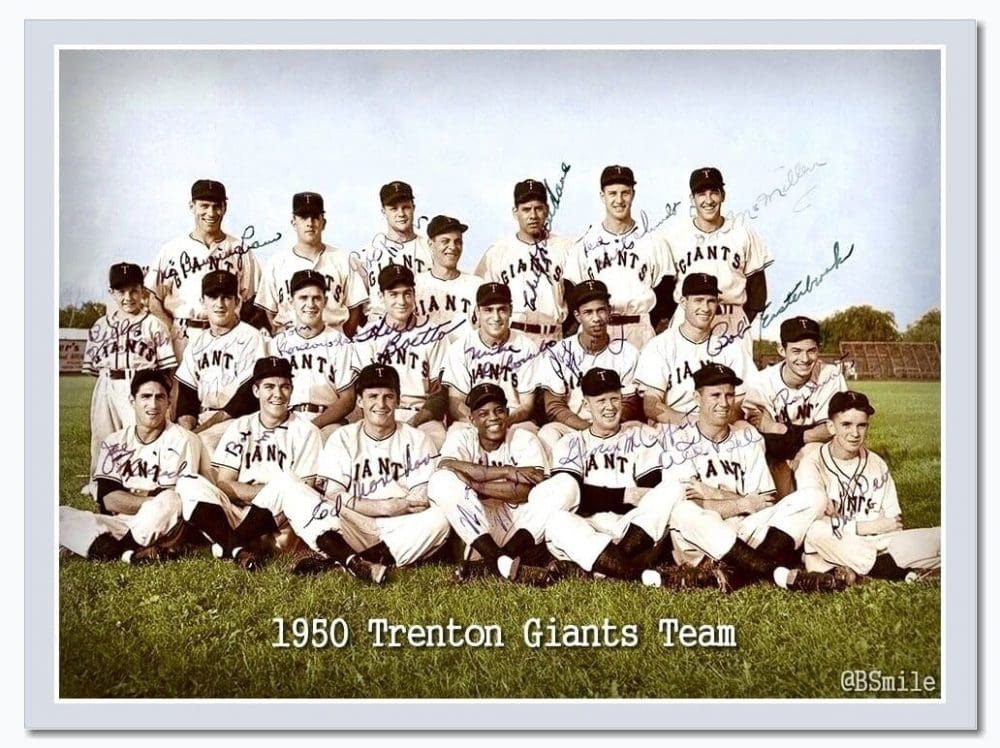Ask any person who the greatest baseball player ever was, and you might get ten different answers. Hank Aaron, Babe Ruth, Ty Cobb, Honus Wagner, and even Barry Bonds often come up in discussions of the greatest ever. That’s because it’s, at its core, a loaded question—baseball has too many moving parts to accurately define greatness above one another. Some value the pure sluggers, while others value defense and hitting for average. However, when talking about the greats, it is universally agreed by many baseball fans that Willie Mays was perhaps the most complete player to ever step foot on the diamond. The term “five-tool player” is even thought to originate with Mays.
Willie Mays began his professional career with the Birmingham Black Barons of the baseball Negro Leagues. It was there where he, as a high schooler, first caught the attention of MLB scouts—specifically in the National League. The Brooklyn Dodgers, who broke the color barrier a couple of years prior with the monumental signing of Jackie Robinson, first scouted Mays’ many talents, but ultimately passed him up. It was then the New York Giants who decided to give him a call. To NY Giants owner Horace Stoneham, Mays was the greatest player he had ever witnessed.
The Giants signed the teenager to a minor league contract, and he made his professional debut in integrated baseball with the Trenton Giants of the Class B Inter State League. He joined the team in Hagerstown, Maryland, where he was subjected to racism on and off the field by fans and players alike. But what Mays became known for, in addition to his play, was his ability to turn off the noise, put his head down, and play. This mindset even drew criticism from other black players and civil rights icons.
View this post on Instagram
In his first game with Trenton, Mays went hitless, but he showed exceptional speed in center field—something that he was praised for throughout his short career thus far. Two days later, Mays made his debut at Trenton’s home field in New Jersey, making three mind-blowing catches, one of them being barehanded. Mays also showed off his Hercules-like throwing arm, launching a ball from center field to home plate.
Mays’ bat was a little slower to develop with the Trenton Giants, but his glove was spectacular enough to keep him on the squad. Plus, though the power wasn’t there yet (he was still a teenager after all), Mays displayed an uncanny ability to hit for average.
Willie Mays went on to play 81 games for the Trenton Giants. He quickly proved himself as a capable player, batting .353 with 20 doubles, eight triples, a .438 on-base percentage, and an impressive .510 slugging percentage. This magnificent play landed him a call-up to the NY Giants’ AAA team, the Minneapolis Millers, where he batted over .400 in the first month of 1951. He was called up to the New York Giants later in 1951, where he would spend the largest portion of his Hall of Fame career.
As Mays’ play developed further, he became the most complete player to ever touch the ball. Barry Bonds, who holds the MLB record for home runs with a gargantuan 762 long shots, idolized Mays growing up; Mays was his godfather and a teammate to Bonds’ father, Bobby Bonds. “I’ve always played for the acceptance of my godfather,” says Barry Bonds of Mays.
Hall of Famer Ty Cobb once noted that Willie Mays was the sole player worthy of his money: “Mays is the only man in baseball I’d pay to see play.”
“I think I was the best ballplayer I’ve ever seen. I feel nobody in the world could do what I could do on a baseball field. I hope I’m not saying anything wrong, but you have to think you’re the best,” says Mays of himself.
Willie Mays began his career in the baseball Negro Leagues, where he quickly displayed star-like ability. He instantly caught the attention of MLB scouts and found himself playing in New Jersey by 1950. His time with the Birmingham Black Barons and the Trenton Giants is not just a footnote in a Hall of Fame career but rather the foundation that paved the way for baseball greatness for decades to come. To me, Willie Mays is the greatest baseball player who has ever lived.
To read more baseball history in New Jersey, click here.
About the Author/s
Peter Candia is the Food + Drink Editor at New Jersey Digest. A graduate of The Culinary Institute of America, Peter found a passion for writing midway through school and never looked back. He is a former line cook, server and bartender at top-rated restaurants in the tri-state area. In addition to food, Peter enjoys politics, music, sports and anything New Jersey.
